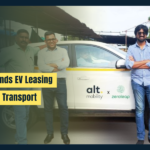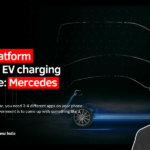
Volkswagen Expands Partnership with Rivian, Investing $800 Million to Boost EV Innovation
Volkswagen has significantly deepened its partnership with Rivian, the American electric vehicle (EV) manufacturer, by investing an additional $800 million into its cutting-edge EV technology. This move underscores Volkswagen’s commitment to accelerating its transition toward sustainable mobility and leveraging Rivian’s advanced platforms to enhance its own EV lineup. The German automotive giant’s investment reflects the growing importance of collaboration in the EV industry, as companies seek to pool resources and share expertise to stay competitive.
Rivian, known for its innovative EV platforms and focus on adventure-oriented vehicles, has rapidly established itself as a leader in the segment. Volkswagen’s decision to bolster its partnership signals confidence in Rivian’s technological capabilities and market potential. This strategic investment also aligns with Volkswagen’s broader goal of electrifying its fleet and achieving net-zero carbon emissions by 2050. By strengthening its ties with Rivian, Volkswagen aims to expand its EV offerings and accelerate its roadmap for electrification in key global markets.
Volkswagen’s Growing Partnership with Rivian
Volkswagen’s decision to invest an additional $800 million in Rivian reflects a deepening collaboration between the two automakers. This partnership began as part of Volkswagen’s strategy to diversify its EV development and strengthen its presence in North America, where Rivian is a major player. Rivian’s expertise in designing advanced electric platforms has made it a sought-after partner in the automotive industry.
The increased investment will allow Volkswagen to gain access to Rivian’s innovative EV technologies, including their versatile skateboard platform, which supports various vehicle types. This partnership is expected to enhance Volkswagen’s ability to develop a diverse range of electric models, from SUVs to commercial vehicles, in a shorter time frame. With Rivian’s growing reputation as a pioneer in sustainable transportation, Volkswagen’s strategic alignment with the American EV maker positions it to compete more effectively in the global EV race.
Rivian’s Innovative EV Technology
Rivian’s cutting-edge technology has made it a valuable partner for Volkswagen and other investors. The company’s scalable skateboard platform is at the core of its success, offering flexibility for designing different vehicle types while maintaining efficiency and performance. Rivian’s focus on adventure-oriented EVs, such as the R1T electric pickup and R1S SUV, has set it apart in the competitive EV market.
Beyond hardware, Rivian’s advancements in software, battery management systems, and sustainable manufacturing practices make it an ideal partner for automakers aiming to transition to cleaner energy solutions. Volkswagen’s investment not only strengthens its partnership but also highlights Rivian’s potential to revolutionize the EV sector. This collaboration is expected to bring more innovative, high-performance EVs to market, benefiting both companies and consumers.
Investment Highlights
- Investment Amount: Volkswagen has increased its stake in Rivian by $800 million.
- Purpose: The investment focuses on leveraging Rivian’s advanced EV platforms and technologies.
- Skateboard Platform: Rivian’s scalable architecture supports a range of vehicle designs, offering versatility and efficiency.
- Volkswagen’s EV Goals: This partnership aligns with Volkswagen’s plan to electrify its fleet and achieve carbon neutrality by 2050.
- Market Focus: The collaboration aims to strengthen Volkswagen’s presence in North America’s growing EV market.
- Competitive Edge: By partnering with Rivian, Volkswagen enhances its ability to compete with EV leaders like Tesla and Ford.
- Technology Sharing: The collaboration ensures knowledge exchange, accelerating development timelines for both companies.
Implications for the EV Industry
The expanded partnership between Volkswagen and Rivian reflects a broader trend in the EV industry, where collaboration is key to overcoming technological and financial challenges. As competition intensifies, automakers










